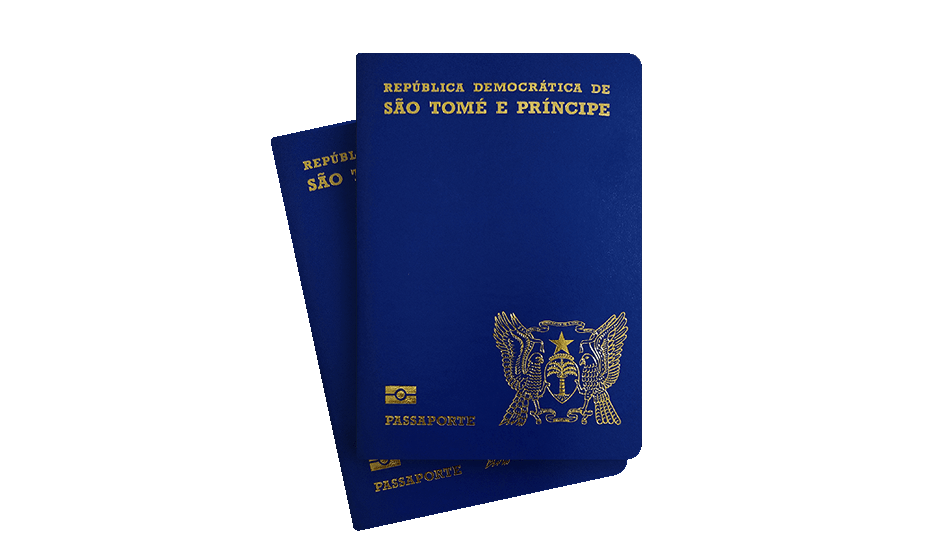Sephardim are a group of Jews who lived on the Iberian Peninsula and were expelled from its territory. Portuguese citizenship for Jews became available in 2015, as the government seeks to correct a historical injustice. To obtain a Portuguese passport, Sephardic descendants need to prove their origins by obtaining a certificate from the Israeli community of Porto or Lisbon. Applicants do not need to know the Portuguese language and have lived in the country for 5 years or more. The following article will describe the procedure for obtaining Portuguese citizenship for Sephardim.
Who are the Sephardim
The Sephardic Jews have lived in Spain and Portugal since late antiquity (3rd to 6th centuries A.D.). They derived their name from the word «Sfarad» — translated from the Hebrew «Spain». At the end of the fifteenth century, the rule of the monks of the Kingdom of Spain had a negative effect on Jewish life: Sephardic areas were defined for them, and in 1483 they were ordered to leave Andalusia within a month. On March 31, 1492, a decree was issued whereby all Jews who had not converted to Christianity had to leave Spain, and four years later history repeated itself in Portugal.
On December 5, 1496, the king of Portugal issued a decree requiring Jews to convert to Catholicism or leave the country. A year later a decree followed that Portuguese Jews were forbidden to leave the kingdom and all were forcibly baptized. In protest, some Jews refused to pay taxes, for which they were deported to islands near Africa. In 1506, a massacre in Lisbon resulted in the murder of about 2,000 people. The king then allowed Jews who had converted to Catholicism to leave Portugal. Fleeing continued until the seventeenth century, only in the nineteenth century did some Sephardic families decide to return.
The number of Sephardic Jews in the world is about 1.5 to 2 million.
Sephardic settlement worldwide
| Country | Sephardi population, thousand. |
|---|---|
| Israel | 673–725 |
| France | 310–350 |
| The U.S.A. | 50–80 |
| Argentina | 37–60 |
| Venezuela | 35 |
| Spain | 31–40 |
| Canada | 30–60 |
| Uruguay | 30 |
| Italy | 30 |
| Brazil | 20–60 |
| Turckey | 25 |
| The U.K. | 16 |
| Greece | 8,5 |
| Mallorca | 8,5 |
| Malta | 2,5–8 |
| Chile | 8 |
| Mexico | 6 |
| Morocco | 6 |
| Colombia | 5 |
| Bulgaria | 5 |
| Cuba | 3 |
| Serbia | 3 |
| Croatia | 3 |
| Peru | 3 |
| Puerto Rico | 2,5 |
| Bosnia and Herzegovina | 1,2 |
| Montenegro | 1 |
| Germany | 1–2 |
| Belgium | 0,8–1,2 |
| Gibraltar | 0,6 |
| The Philippines | 0,5 |
| Northern Macedonia | 0,2 |
| Ukraine | 0,1 |
| Russia | < 0,1 |
| Belarus | < 0,1 |
Law on Portuguese Citizenship for Sephardic Jews
In 2015 the national government passed an amendment to the Citizenship Law that made Portuguese citizenship available to Sephardim. According to it, descendants of exiled Jews can obtain a Portuguese passport through the naturalization procedure. Applicants are exempt from two requirements: permanent residence in the country for 5 years and knowledge of the state language. According to unofficial data, about 60,000 people have applied since 2015, and about 20,000 of them have received a positive response.
Due to the large influx of applicants, the country’s authorities intended to limit the issuance of Portuguese passports to Sephardim. In 2020 members of the Socialist Party submitted a draft of new amendments to the law «On Citizenship. According to them, the right to obtain citizenship should be granted to those who have lived in Portugal for at least 2 years. It was also planned to stop issuing passports to Sephardim. But the project was not supported, and in the amendments of November 10, 2020 there is no change for Sephardic Jews.
Citizenship requirements
Obtaining Portuguese citizenship for Jews entails the following conditions:
- be of legal age or emancipated under Portuguese law (declared fully capable upon reaching the age of 16);
- have no criminal record for crimes punishable by up to 3 years imprisonment under local law;
- pose no threat to the security of the country’s population due to participation in terrorist activities;
- prove direct (child, grandchild, great-grandson, etc.) or indirect (nephew, cousin, etc.) Sephardic origin.

The required documents
List of documents for obtaining Portuguese citizenship based on Jewish roots:
- birth certificate with apostille;
- criminal record certificate with a certified translation into Portuguese;
- a certificate from the Portuguese Jewish community;
- a statement addressed to the Minister of Justice describing the applicant’s affiliation with the Portuguese Sephardic community, stating his or her details, parents, nationality, place of residence and occupation;
- a receipt for the payment of a fee of 250 EUR.
If the applicant does not have a certificate from the Portuguese community of Israelis, he/she can provide the following documents instead:
- a document from the Jewish community to which the applicant belongs, confirming the use of expressions in Portuguese in rites or Ladino in daily life;
- notarized records from synagogues, cemeteries, wills and other documents proving the applicant’s origins.
How to obtain Portuguese citizenship through the Jewish community
The processing of Portuguese citizenship for Israelis consists of the following steps:
- Genealogical research. The applicant needs to prepare all the papers that may indicate their origins. To do this, it is worth contacting a genealogist who will gather supporting documents and compile a tree.
- Obtaining a certificate. Once you have collected proof of origin, you should apply for a certificate from the Jewish community in Portugal (Lisbon or Porto). It is not necessary to come to the country in person to apply — it can be done by e-mail or through a representative. All the necessary contacts as well as detailed requirements for the format of the genealogical tree can be found on the official websites of the Lisbon and Porto communities.
- Collection of documents. After receiving the certificate, the applicant must form a file for citizenship. If the certificate from the Portuguese Jewish community cannot be obtained, it is necessary to apply to the community to which the applicant belongs for alternative documents.
- Applying for Portuguese citizenship for Sephardic Jews. The prepared package of documents is submitted in person or through a representative to the registry office, the branch of the Conservatory of Central Registration in the National Support Centres for the Integration of Migrants or the Portuguese embassy in the country of residence. The period of processing applications for Portuguese citizenship for Jews is 12-24 months.
- Obtaining a passport. Once a positive decision is made, the Portuguese Central Registry Office sends a new birth certificate to the applicant’s place of residence. The passport and citizenship card must be processed separately at the Portuguese diplomatic mission.
Pros and cons of the program
There are several advantages to acquiring Portuguese citizenship through the Jewish community:
- shortened naturalization procedure — no need to obtain a residence permit and wait 5 years, as in cases of immigration through work or investment, for example;
- dual citizenship — Portuguese law does not require the surrender of an existing passport;
- no requirement to know the Portuguese language;
- low costs — the applicant has to pay the state fee, pay the services of a genealogist and lawyers (if he had recourse to them), but does not need to spend money for investments, moving to work or study, starting a business;
- the ability to freely travel, work and conduct business in other EU countries;
- visa-free travel within the Schengen area, simplified entry to Canada, Japan, the US and Australia.
The disadvantages of the program include a long waiting period — due to the large number of applicants, the application process can take up to two years. The difficulty also lies in the search for documents: it is necessary to confirm the origin, attaching documents for the last 500-600 years. Having a Sephardic surname does not guarantee a positive decision of the state authorities, a detailed genealogical tree is required.
Obtaining a Portuguese passport for Sephardic descendants is not an easy procedure, which can be difficult to understand on your own. To facilitate the process or to find alternative ways of obtaining Portuguese citizenship, it is worth contacting lawyers who have experience with such situations and will help the applicant to avoid wasting time.















